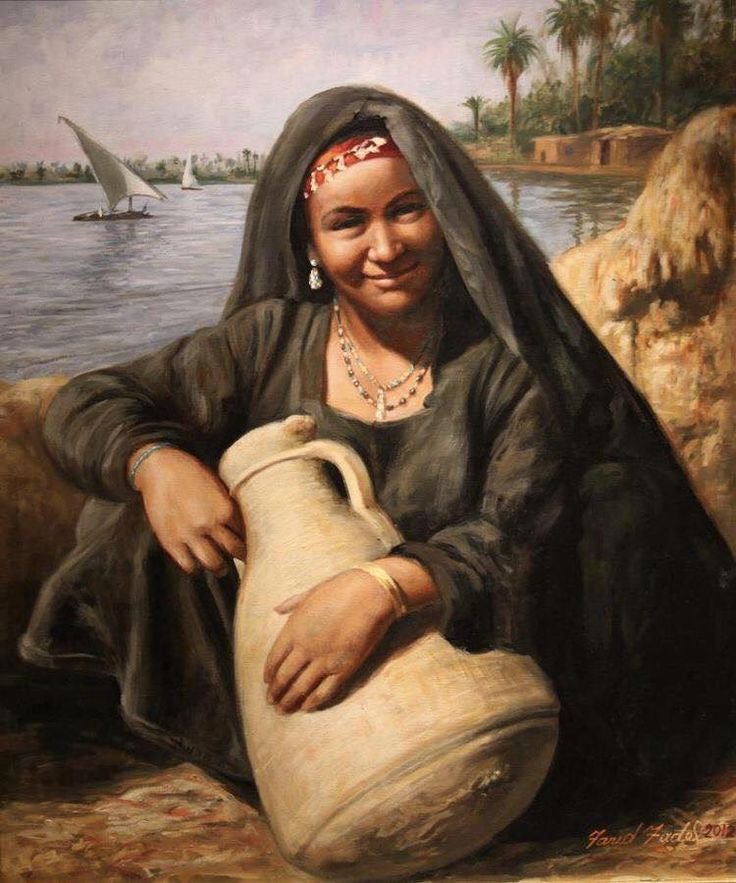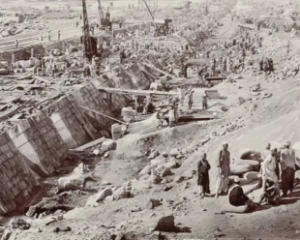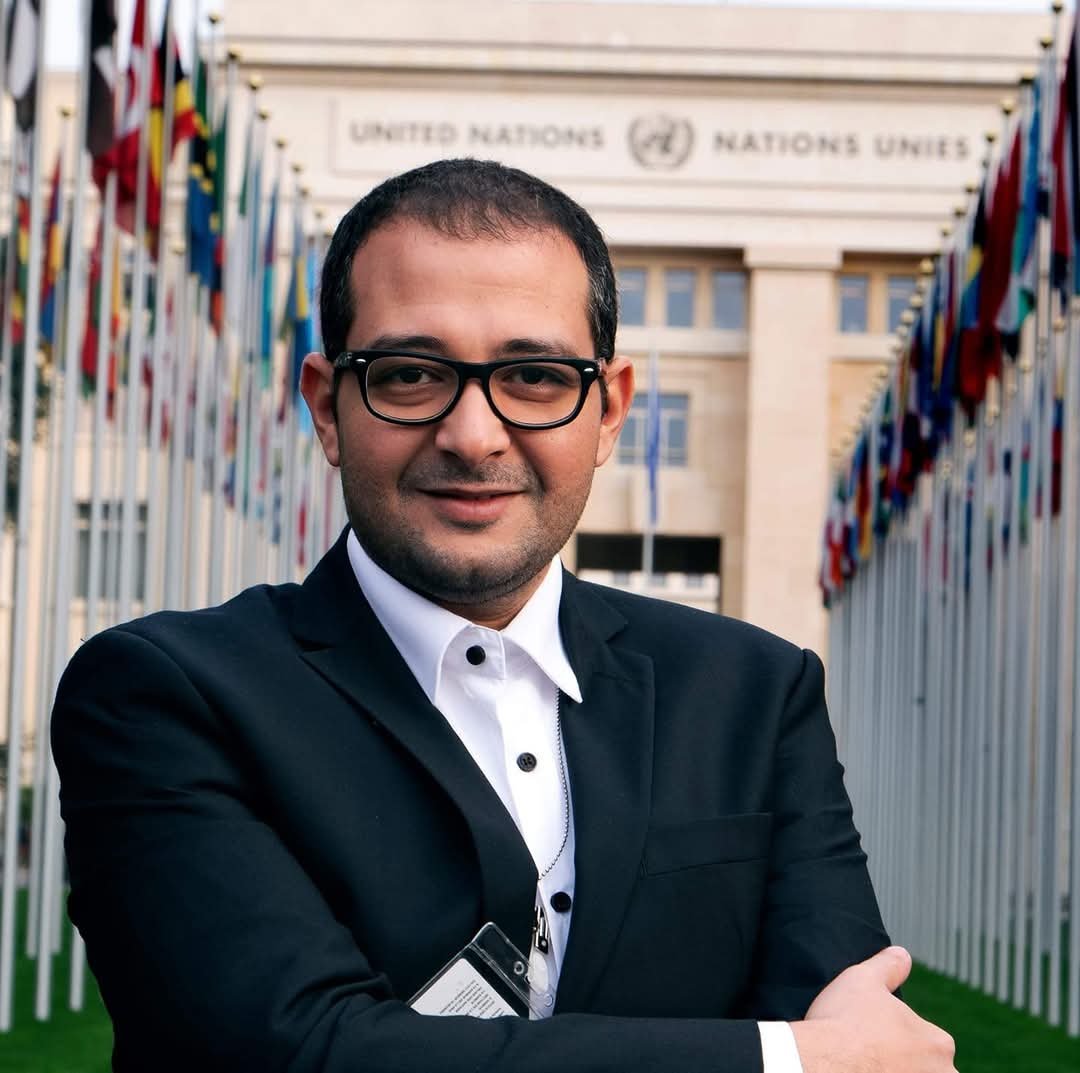
Celebrating Egyptian Women Through The Eyes of Poet Abdel Rahman El-Abnudi
Egypt is a large country with a vibrant history. Over the centuries, Egypt has witnessed many inspiring female figures, whether in politics, art, science, literature, thought, or human rights struggle. It would be possible to highlight any of them, of course, but it would be highlighting exceptional qualities like intelligence, determination, or courage. etc, thus the exceptional would overshadow the ordinary, and the extraordinary would overshadow the everyday while my goal is to highlight the true metal of the ordinary traditional Egyptian woman in her simplest form. Therefore, the ‘shero’ of this article is “Fatima Ahmed Abdel Ghaffar”. Fatima is a character in a poem by the great Egyptian colloquial poet Abdel Rahman El-Abnudi. As a human rights defender specializing in minority rights, I’m more interested when we say “Muslim woman” that we think of the diversity and cultural specificity enjoyed by those different from us and remind us that they deserve to enjoy all human rights regardless of their religion, gender, language, color, race, ethnicity, or nationality.
The genius of this character lies in how strongly she resembles the women in my country – when an Egyptian hears about her, they immediately remember a mother, wife, grandmother, sister, or daughter, who have been an important part of their lives. The poem consists of exchanged letters between “Haragi,” a peasant husband, who was recruited in the 1960s to work on President Nasser’s (1) giant project “The High Dam (2) ,” and his wife whom he left behind in their poor village in Upper Egypt, with their daughter and son, Aziza and Eid. The poem consists of 13 letters from Master Haragi, and eleven responses from his wife Fatima, read in the author’s voice(3) “Abdel Rahman El-Abnudi” for nearly two full hours. In his letters, Haragi talks about his amazement at the machines, people, project, and foreigners, as he had never known anything in his life except his villagers, the Nile, the land, the fields, birds and animals, and simple village activities.

Picture of the High Dam Project. Source: https://www.bbc.com/arabic/middleeast-55438975
But before delving into Fatima’s character, it is useful in this context to introduce a little about the background of poet Abdel Rahman El-Abnudi. Abnudi was born in difficult economic circumstances in a small village in southern Egypt, like the two protagonists of the poem. The first and most important influence in Abnudi’s life was his mother, and Abnudi tells the story of his mother who was married off by her family when she was a child of eleven years old, moving to her husband’s house without knowing the reason she was taken from her family. When she reached thirteen, she was forcibly ‘deflowered’ following an old inhumane tradition that Abnudi calls a “tribal crime” requiring the bride’s ‘deflowering’ on her wedding night (that is, the night when consummation first occurs between the spouses, and sometimes this night comes weeks, months, or years after the wedding ceremony).
This process is carried out with a white handkerchief around the husband’s fingers to break the hymen in the presence and assistance of his mother and other relatives, and then going out and raising the handkerchief for all attendees to see, celebrating the blood traces on the handkerchief as proof of her virginity and chastity. On the night his mother had to painstakingly experience this ritual, Abnudi’s mother felt she was among criminals and fled while bleeding, to her family’s house on foot, running for 12 kilometers, going to hide in the courtyard of the house fearing her family’s anger if they saw her returning. She fainted and was found later by her grandmother, and stayed in her house until she recovered. Her father had to carry her in his arms and walk the same distance to her in-laws’ house to show the village that she was a child and that she was in his house, apologizing to the husband’s family and leaving her there. She stayed for a while and then ran away again, but this time she knocked directly on her father’s door and didn’t hide. Her father took a stand for her, got her divorced from her husband and pledged to protect her.
Abnudi’s mother is a distinctive character whom Abnudi describes in one of his interviews as a “jewel,” just as Haragi, the character of Abnudi’s poems, describes Fatima in the opening of all the letters: “The protected jewel, and the hidden pearl, our (4) wife Fatima Ahmed Abdel Ghaffar.” Abnudi’s mother possessed an exceptional talent for storytelling and the ability to memorize hundreds of verses of traditional songs inherited from her grandmother. These are great traditional songs carrying deep meanings about various aspects of life, such as marriage, love, pain, loss, jealousy, success, pride etc. She was loved and appreciated among her family and peers, and Abnudi says he is his mother’s son, and she is the reason for his talent which he acquired through listening to her stories and songs. It’s no surprise that Abnudi’s mother is also named “Fatima” like our poem’s protagonist.
The poem is written in the Upper Egyptian dialect using words and expressions used in daily life in Upper Egypt, a dialect characterized by simplicity, authenticity, and depth of meanings, carrying within it much of Upper Egypt’s culture. Fatima in the poem is a mother of two children with no support in her village except for “Haragi,” her husband, who was sent to our borders with Sudan to work on the High Dam project for a meager wage that barely fed his small family. This article will not elaborate on “Fatima’s” love for Haragi to avoid undermining women’s worth by linking her to a man’s love alone, it is however important to mention that Fatima had a generous heart, passionate feelings, refined imagination, and a wonderful balance in managing all these feelings and expressing them. Haragi is two months late in sending his first letter after arriving at the dam in Aswan, and he expresses his shame and asks Fatima’s forgiveness. Fatima reproaches him and denounces his delay:
“Two months, you miser?! Sixty suns and sixty nights? By the Prophet, Haragi, If I reach your heart, I’ll bite off the hard part of it with my teeth.”
But she feels compassion for his worry about her, so she returns to reassure him about her condition and that of Eid and Aziza, their children. This sensitivity is inherent in Egyptian women and appears repeatedly in the poem in different situations. In one of the letters, Fatima’s heart saddens from the distance between them and she asks Haragi to either return or let her and their children move to him, and she complains about her state:
“Well, find me a solution. Because since last night it’s as if they poured two seas of vinegar in my nostrils”
This upsets Haragi, who responds to her:
“Anguish when it takes hold of a man’s chest blinds his eyes and shakes his hands and shakes his soul from within. And you know He becomes confused and doesn’t know what’s coming and what’s going, what he has, and what he owes. And he fears himself and fears the blue air if it passes by him. And if the anguish comes from someone the soul loves then that, oh Fatima (5) , is the only true anguish”
So Fatima returns in the next letter to reassure him that she’s fine and that she was just being pampered with him, saying:
“And I’m not embarrassed by the paper we sent. We felt things inside us and we said them. And if we feel again we will say again. If words scream in the gut, A free mouth can never stay closed.”
And thus Fatima skillfully manages the emotions in their relationship and provides love, containment and support, which is something Haragi notices, and realizes its value and appreciates; for example, in the opening of one of his letters, he addresses Fatima:
“My wife, Mother of my children, My garment and the flesh of my neck Fatna Ahmed Abdel Ghaffar, My wife and sister, My cover and blanket, And the shoulder that’s always carrying me And my burden Fatna, the light of my night and my bench, And my house door and family. Fatna, lady of all people…”
Although Fatima didn’t receive any education and can neither read nor write, she understands the importance of her children’s education and her responsibility in ensuring they complete it, so she sends a letter to tell Haragi about sending their son Eid to the “Kuttab,” which is an old educational model that was widespread in Egyptian villages, meant for memorizing the Quran and teaching reading and writing to students before they joined formal education, and she explains her perspective:
“And between you and me, Haragi, I want him (their son Eid) to grow up And compensate us for family And make us valuable. I want his value in the mouse’s mountain (the village name) to be the value of all values”.
She monitors Eid’s growth, and developments in his personality and shares this with Haragi. Fatima is also not just a mother and wife, she has a social role and great awareness of the responsibility that comes with it. For example, in one of the letters, she tells Haragi about the necessity of sending money, ghee, and grains to his sister “Nazla” who was going to give birth within two days, and reminds him that Nazla “has been good to us,” so Haragi thanks her and tells her that “no one understands returning favors better than her.” “Returning favors” is a common Egyptian term referring to the practice of recording and remembering the situations and help we receive from others, and staying indebted to them until returning these favors and better ones, and thus goodness spreads in society and grows with a simple equation referred to by a term that has appreciation in people’s conscience, which is “returning favors”. Fatima also demonstrates gender awareness, advocating for an elderly village woman, Umm Ali Ab Abbas, whose son, like many others, works at the dam with Haragi but never writes to her. Fatma passionately speaks on behalf of the grieving mother, urging Haragi to pressure the son into writing:
- “A mother’s heart, when struck by longing, O Abu Eid (Eid’s father),
- Burns hotter than desert sand at midday.
- It becomes an empty nest, crying for its lost bird.”
Haragi responds with irritation, perhaps trying to downplay the pain:
- “Damn Umm Ali Ab Abbas and whoever brought her into this world!
- The man has been through so much his hair has turned white,
- And you expect him to write letters?
- Let her stay among the women!
- Doesn’t she receive money from him? That should be enough!
- What more does she want—should he become a drunkard? A womanizer?
- Even quit smoking?
- Such excessive longing is forbidden!”
However, we find Fatima telling Haragi:
- “Your words about Umm Ali Ab Abbas were harsh.
- But when they told me yesterday that El-Bostawi (the postman) was in the alley,
- I ran, thinking you had sent me a letter.
- When I found it was from Ali, I thought, ‘God, you are generous!’
- I looked up, whispered my thanks,
- And Umm Ali Ab Abbas prayed for you.
- She said, ‘If not for Haragi, would my son have written at all?’
- And when Marzouk (the postman) read it aloud, her tears flowed…
- The women tried to comfort her,
- But she kept crying.
- She said, ‘What’s wrong with you all?
- How often does joy come knocking?
- Let me cry—
- It’s a tear to cool a burning heart.”
In Fatima’s world, women do not work, yet this has not stopped her from desiring to do so. She begins to raise the subject with Haragi, carefully, in several letters. Her determination grows as she comes to accept that Haragi may never return. Eventually, in one letter, she declares her decision: she will farm their two Qirats (6) of land and sell the harvest at the market.
The Egyptian woman is a remarkable force—like a lot of her counterparts, she suffers greatly, bears much, and endures cultural, social, economic, and legal violence. Yet she remains an immense source of strength, carrying these social responsibilities upon her shoulders. She is a figure worthy of celebration, deserving of better conditions and greater rights. This is not to romanticize her struggle, but to acknowledge their selfless contribution.
(The views expressed in this article are the author’s own. Content can be used with due credit to the author and to ‘Zariya: Women’s Alliance for Dignity and Equality’)
(The first picture is an old portrait of an Egyptian woman in a village by Walid Yassin. Source (https://www.pinterest.com/pin/712694709759565444/)
Footnotes:
- https://www.britannica.com/biography/Gamal-Abdel-Nasser
- https://en.wikipedia.org/wiki/Aswan_Dam
- Here is a link to the full poem in the author’s voice: https://youtu.be/EaFp36WKbUc?si=AWLEub8PdnDoLCNC
[4] He adopts the plural form. He is an illiterate farmer, accustomed to speaking in the everyday dialect, yet in his letters, he always begins with a formal, almost classical opening before slipping back into his natural, unpolished speech. This imitation mirrors the way people in high positions use the plural form to elevate themselves—a habit he unconsciously adopts. In one letter to Fatma, he writes, “I don’t even know what the ‘hidden pearl’ is, but to me, you are greater and more precious than the entire world.
[5] (Pronounced as ‘Fatna’ in upper Egypt)
[6] A traditional unit of land measurement used in some regions, equivalent to 175 square meters.
About the Author:

“Makarios Lahzy is an Egyptian freelance lawyer, human rights activist, and writer with extensive experience advocating for minority rights and marginalized communities.”
He can be reached at: attorney.makarios@gmail.com



